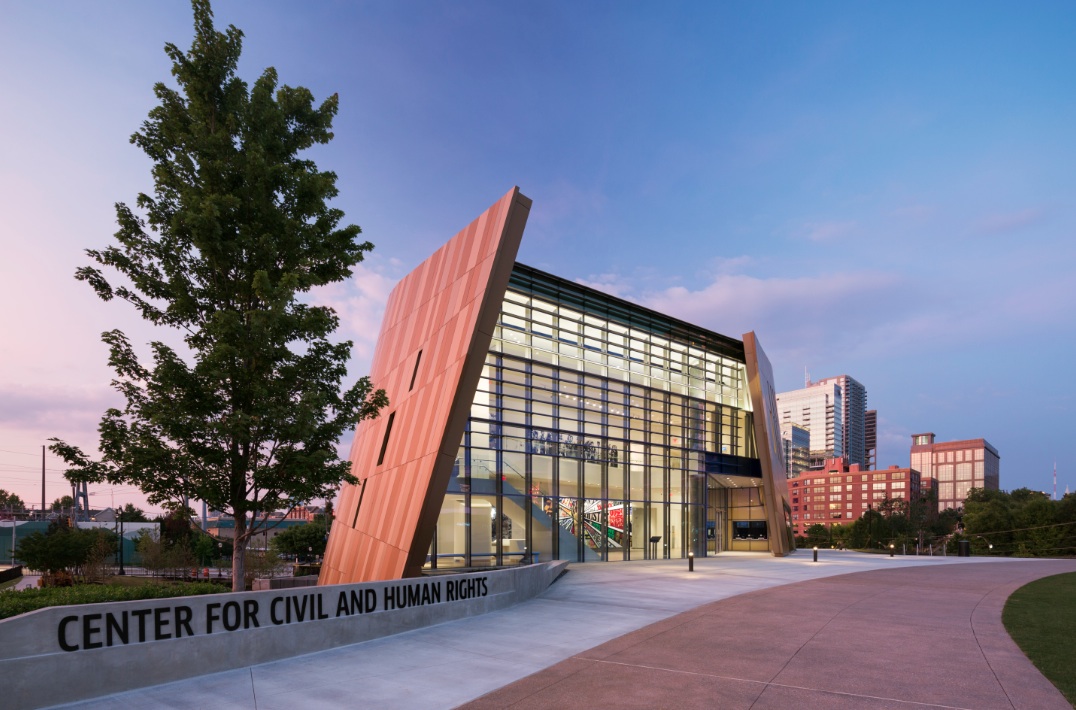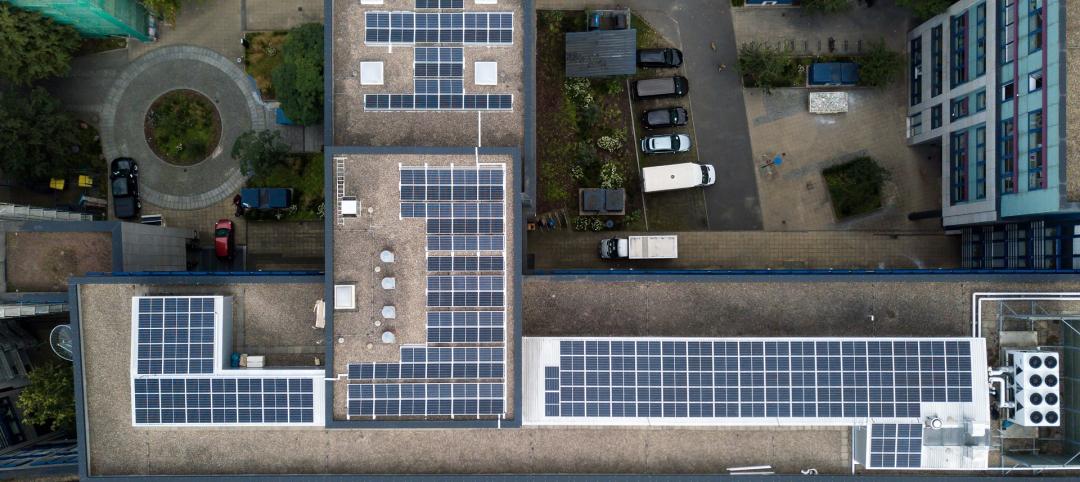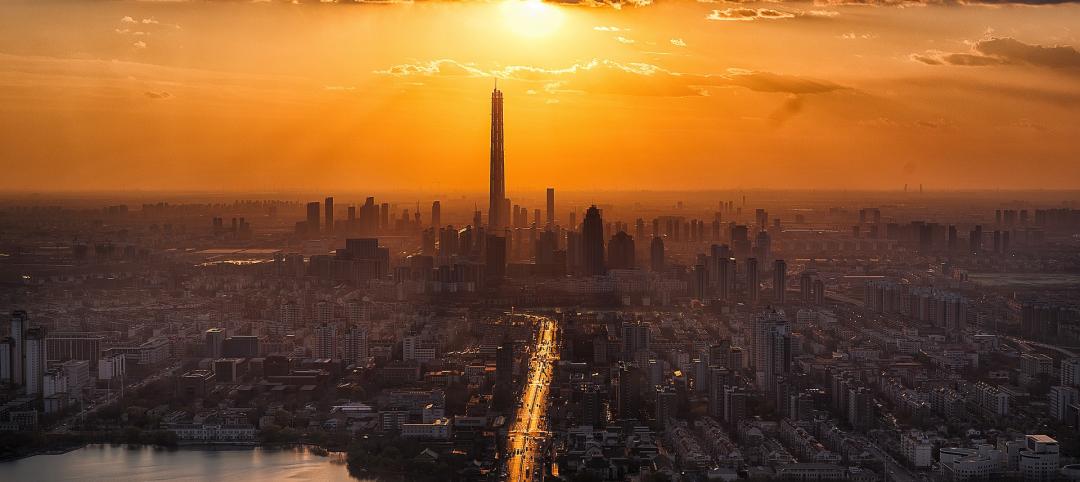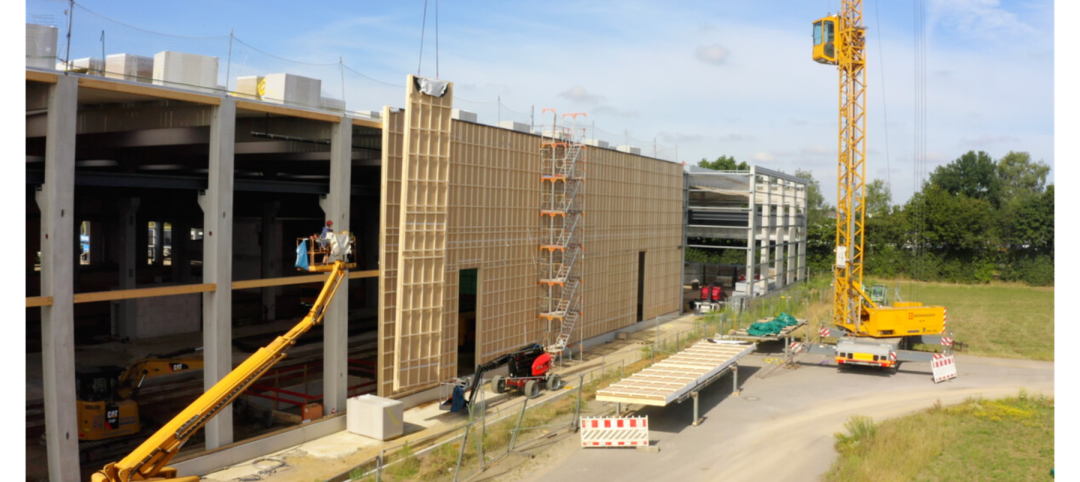Now in its fifth year, the per-capita list is based on 2010 U.S. Census data and includes commercial and institutional green building projects that were certified throughout 2014. Illinois retained its top national position for the second year in a row, with 174 LEED certifications representing 3.31 square feet of LEED-certified space per resident.
Two newcomers to the list, Georgia and Arizona, show that 2014 was a year of major growth for LEED in the South and Southwest regions of the country, while the continued strong performance of Washington, D.C., Maryland and Virginia have helped the mid-Atlantic region remain the epicenter of green building across the country. Washington, D.C., which is not included on the official list of top states due to its status as a federal territory, is notable as it continues to lead the nation with 29.44 square feet of space per resident certified in 2014. Maryland and Virginia finished third and fourth respectively, and both states increased their per capita totals to 2.70 and 2.33 square feet of LEED space per resident in 2014.
The 2014 list had the highest average (2.34) of per capita space certified per resident per state since 2010, and the second highest average to date. Six of the eight states (Ill., Colo., Md., Va., Mass., and Hawaii), which were also on the list in 2013, increased the amount of square feet of space they certified per resident in 2014. Illinois and Colorado are the only two states to make the list every year since 2010.
The full ranking is as follows:

USGBC calculates the list using per-capita figures as a measure of the human element of green building, allowing for a fair comparison of the level of green building taking place among states with significant differences in population and, accordingly, number of overall buildings.
In 2014, LEED for Building Operations and Maintenance was once again the most popular rating system within the top 10 states, representing 48 percent of the total square footage certified. LEED for Building Design and Construction was the second most popular rating system in the top 10, representing 46 percent of the square footage certified and LEED for Interior Design and Construction was the third most popular rating system, representing 6 percent of total square footage certified in these states in 2014.
A sample of notable projects that certified in these states in 2014 include:
- Illinois: The Aon Center, a 3.2 million-square-foot tower in Chicago owned by Jones Lang LaSalle, LEED Silver
- Colorado: Denver Museum of Nature & Science’s Morgridge Family Exploration Center in Denver, LEED Platinum
- Maryland: NASA Goddard Space Flight Center Building 26 in Greenbelt, LEED Gold
- Virginia: University of Mary Washington’s Technology Convergence Center in Fredericksburg, LEED Silver
- Massachusetts: Winchester Hospital Ambulatory Surgery Center in Winchester, LEED Gold
- Hawaii: City Financial Tower in Honolulu, LEED Gold
- California: Levi's Stadium in Santa Clara, LEED Gold
- Georgia: The Georgia World Congress Center in Atlanta, LEED Silver
- Minnesota: Wells Fargo Center in Minneapolis, LEED Gold
- Arizona: Arizona State University Health Services renovation in Tempe, LEED Platinum
- New York: Golisano Institute for Sustainability at the Rochester Institute of Technology in Rochester, LEED Platinum
Collectively, 1,662 commercial and institutional projects became LEED certified within the top 10 states in 2014, representing 251.7 million square feet of real estate. Worldwide, 4,502 projects were certified in 2014, representing 675.7 million square feet.
More than 26,600 projects representing 3.6 billion square feet of space have been LEED-certified to date, with another 42,000 projects representing 8.8 billion square feet in the pipeline for certification. USGBC launched LEED v4, the newest version of the rating system, in the fall of 2013. The latest version continues to raise the bar for the entire green building industry, which Forbes Magazine projects could be worth up to $960 billion globally by 2023. LEED v4 features increased technical rigor; new market sector adaptations for data centers, warehouses and distribution centers, hospitality, existing schools, existing retail and midrise residential projects; and a simplified submittal process supported by a robust and intuitive technology platform.
Related Stories
Green | Dec 9, 2022
Reaching carbon neutrality in building portfolios ranks high for organizations
Reaching carbon neutrality with their building portfolios ranks high in importance among sustainability goals for organizations responding to a Honeywell/Reuters survey of senior executives at 187 large, multinational corporations. Nearly nine in 10 respondents (87%) say that achieving carbon neutrality in their building portfolio is either extremely (58%) or somewhat (29%) important in relation to their overall ESG goals. Only 4% of respondents called it unimportant.
Green | Dec 9, 2022
Newly formed Net Zero Built Environment Council aims to decarbonize the built world
Global management consulting firm McKinsey recently launched the Net Zero Built Environment Council, a cross-sector coalition of industry stakeholders aiming to decarbonize the built world. The council’s chief goal is to collaboratively create new pathways to cut greenhouse gas emissions from buildings.
Office Buildings | Dec 6, 2022
‘Chicago’s healthiest office tower’ achieves LEED Gold, WELL Platinum, and WiredScore Platinum
Goettsch Partners (GP) recently completed 320 South Canal, billed as “Chicago’s healthiest office tower,” according to the architecture firm. Located across the street from Chicago Union Station and close to major expressways, the 51-story tower totals 1,740,000 sf. It includes a conference center, fitness center, restaurant, to-go market, branch bank, and a cocktail lounge in an adjacent structure, as well as parking for 324 cars/electric vehicles and 114 bicycles.
Energy Efficiency | Dec 6, 2022
Washington state’s Building Code Council mandates heat pumps in all new residential construction
The Washington State Building Code Council has voted to require heat pumps for all new residential construction starting in July 2023. The new mandate has drawn criticism over concerns that it will add costs to housing construction, especially given current supply chain challenges for heat pumps.
Geothermal Technology | Dec 6, 2022
Google spinoff uses pay-as-you-go business model to spur growth in geothermal systems
Dandelion Energy is turning to a pay-as-you-go plan similar to rooftop solar panel leasing to help property owners afford geothermal heat pump systems.
75 Top Building Products | Nov 30, 2022
75 top building products for 2022
Each year, the Building Design+Construction editorial team evaluates the vast universe of new and updated products, materials, and systems for the U.S. building design and construction market. The best-of-the-best products make up our annual 75 Top Products report.
Legislation | Nov 23, 2022
7 ways the Inflation Reduction Act will impact the building sector
HOK’s Anica Landreneau and Stephanie Miller and Smart Surfaces Coalition’s Greg Kats reveal multiple ways the IRA will benefit the built environment.
Green | Nov 13, 2022
NREL report: Using photovoltaic modules with longer lifetimes is a better option than recycling
A new report from the U.S. National Renewable Energy Laboratory (NREL) says PV module lifetime extensions should be prioritized over closed-loop recycling to reduce demand for new materials.
Green | Nov 13, 2022
Global building emissions reached record levels in 2021
Carbon-dioxide emissions from building construction and operations hit an all-time high in 2021, according to the most recent data compiled by the Global Alliance for Buildings and Construction.
Wood | Nov 1, 2022
A European manufacturer says its engineered wood products can store carbon for decades
Metsä Wood, a Finland-based manufacturer of engineered wood products, says its sustainable, material-efficient products can store carbon for decades, helping to combat climate change.

















